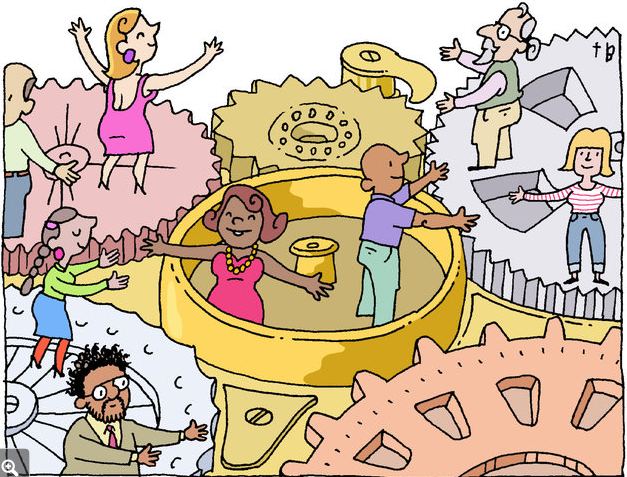 March 28, 2017
March 28, 2017
Kathy and Paul were talking one night after dinner about plans for a summer vacation, and soon found themselves disagreeing with each other’s suggestions. At one point, Kathy raised the idea of a trip to a national park area. Paul had a sudden flashback: A similar trip some years ago, which ended in disaster. Bad lodging, terrible weather, and bickering about why they had done that trip to begin with. Paul recalled that Kathy had been more interested in it than he was, but that he had gone along with it to please her.
Suddenly, Paul made a negative comment about a recent furniture purchase. He told her he thought it was too expensive — and ugly to boot, but had gone along with it because she liked it. “Why are you bringing that up now?” Kathy asked, angrily. “That’s got nothing to do with planning our trip!” Their conversation deteriorated from there, and they didn’t speak to each other for the rest of the evening.
So what happened? Some new research from the University of Waterloo sheds light on how and why. But relationships are complicated: Some other studies find that attempts to heal disagreements may have an opposite effect, depending on the situation and the needs or vulnerabilities of each partner.
First, the Waterloo research, published in Personality and Social Psychology Bulletin: It found that when one partner recalls a negative experience from the past — triggered by something in the present that has no real connection to it – that partner is likely to bring up most any annoyance or irritation from the present. The researchers called that “kitchen thinking,” because partners throw everything but the kitchen sink into the argument.
The study’s co-author Kassandra Cortes said, “When memories feel closer to the present, those memories are construed as more relevant to the present and more representative of the relationship. If one bad memory feels recent, a person will also be more likely to remember other past slights, and attach more importance to them.”
That is, that if a partner’s past transgression or slight feels like it happened yesterday — even if it didn’t — he or she is more likely to remember it during new, unrelated arguments. So, even if neither partner mentions an old transgression during the current argument or disagreement, just thinking about it could erupt in ways that hurt the relationship in the present.
And then, the other partner is likely to feel befuddled; even angry, unable to understand why their partner has become so upset over something so seemingly minor. Moreover, that can have lasting effects: The researchers found that partners who tend to recall previous slights or wounds during new conflict tended to react more destructively, with more conflicts and more negative feelings about their relationships, in general.
Other studies, though, present somewhat contradictory findings about what helps couples deal with conflicts or emotionally distressing experiences. For example, research from SUNY at Binghamton found that being supportive and positive towards your partner in an effort resolve a conflict can backfire, and actually raise the partner’s stress level. And, in other situations, behaving in ways that appear unsupportive can have a paradoxical, positive impact.
On the other hand, another study, from the University of Alberta and published in Developmental Psychology, found that conveying empathy and showing direct emotional support to an unhappy or troubled partner enhances the partner’s mental health and helps the overall relationship.
Psychologically, I think these seemingly mixed findings illustrate that people who experience underlying anxiety and insecurity in their relationships and who often fear abandonment – whether consciously or unconsciously — will tend to experience past slights as being closer in time to the present, and react to them in the present, compared to those who feel more secure. Moreover, their degree of security in relationships can lead to outwardly contradictory responses to either empathic or non-empathic communications from their partners.
Overall, I think that even couples who experience secure attachment personally and with each other would benefit from practicing what I’ve described here as “radical transparency” — mutual disclosure and openness — especially when a situation generates conflict or differences. That is, become transparent right then, when the issue arises. Ignoring what you experience or thinking you can dismiss it is likely to render it semi-underground, where it brews…awaiting for an opportunity to infect a new situation.
Credit: Flickr/Sage Therapy
A version of this article also appeared in Psychology Today.

















































